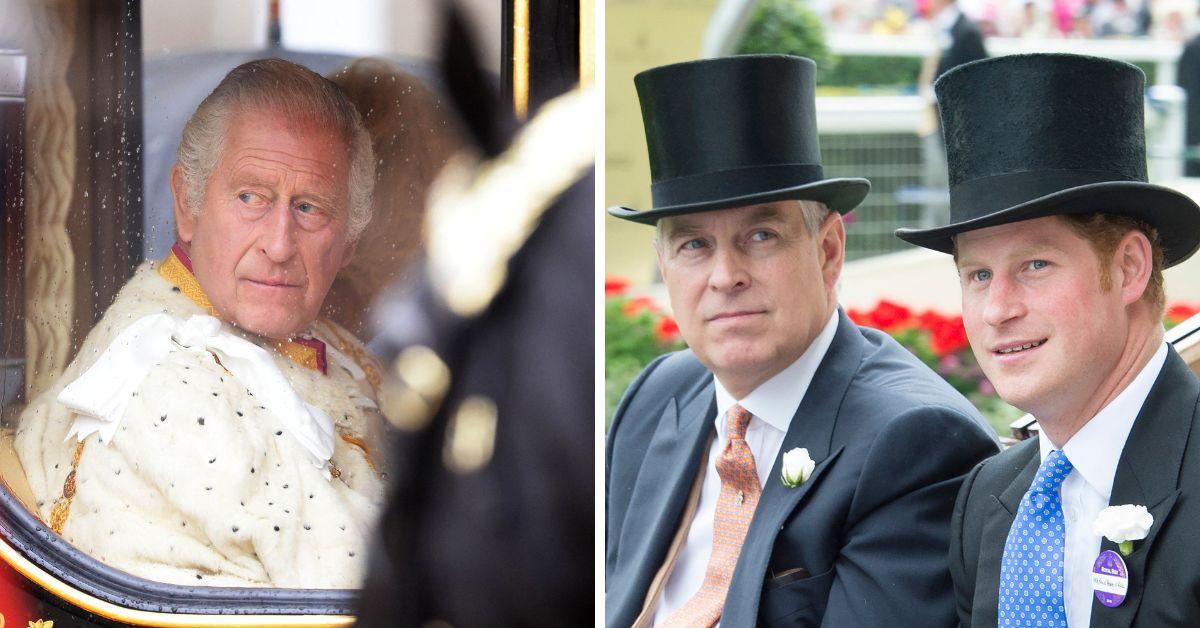In a dramatic turn of events, King Charles III has made a historic and controversial decision that will forever alter the landscape of the British monarchy.
The King has officially stripped both Prince Harry and Prince Andrew of their royal titles, a move that has shocked the world and sparked intense debate on the future of the monarchy.
This bold action, described by many as a strategic response to internal family conflicts, underscores the significance of loyalty, legacy, and modernizing the royal institution.
King Charles, known for his unwavering commitment to tradition, has taken the unprecedented step of removing his own flesh and blood from the royal fold, sending a powerful message about his reign and the future of the monarchy.

Royal titles, in the British monarchy, represent not only status but also power and belonging. Losing such titles is no mere formality—it is an emotional and historical blow, akin to being erased from the family and the royal legacy. Historically, such a move was almost unheard of, reserved for the most severe circumstances. In this case, both Prince Harry and Prince Andrew face the painful reality of being cast out—physically and emotionally—from the royal family.

Reports suggest that Harry was deeply hurt by his father’s decision, viewing it as a final rejection of any hope for reconciliation. Despite his respect for the late Queen Elizabeth II and the traditions of the royal family, Harry’s bond with his father may now be irrevocably broken. In a poignant interview, Harry remarked, “I will always be my father’s son no matter what,” but the question remains: can this relationship survive such a public and painful split?





